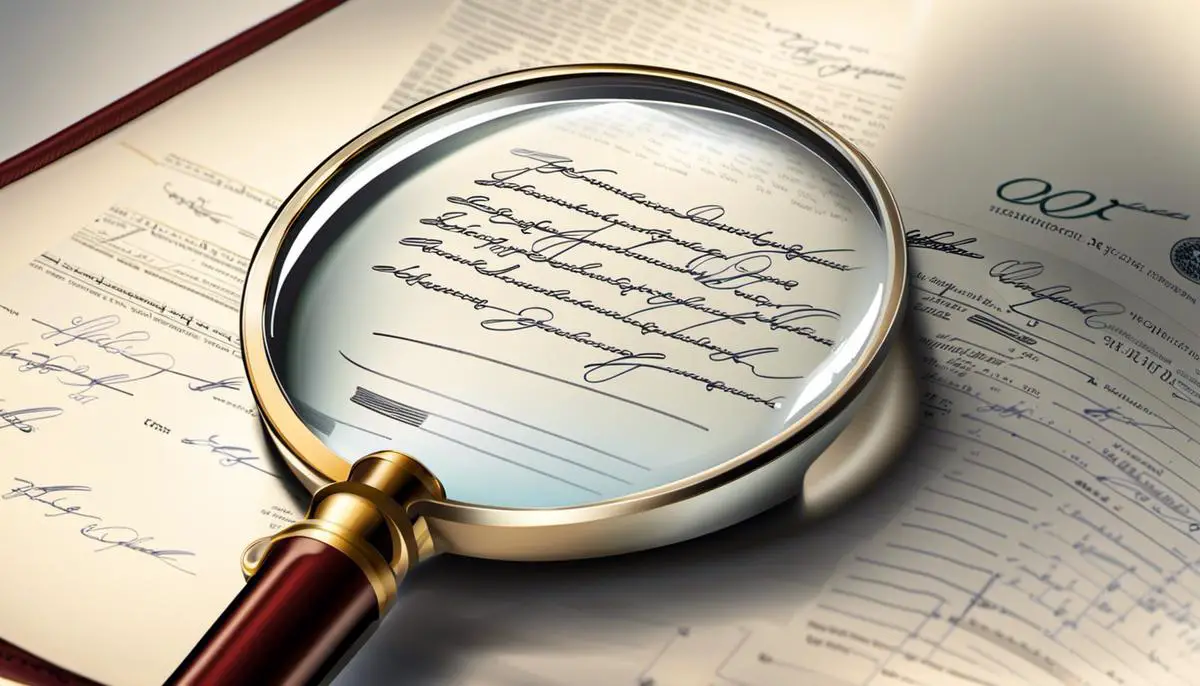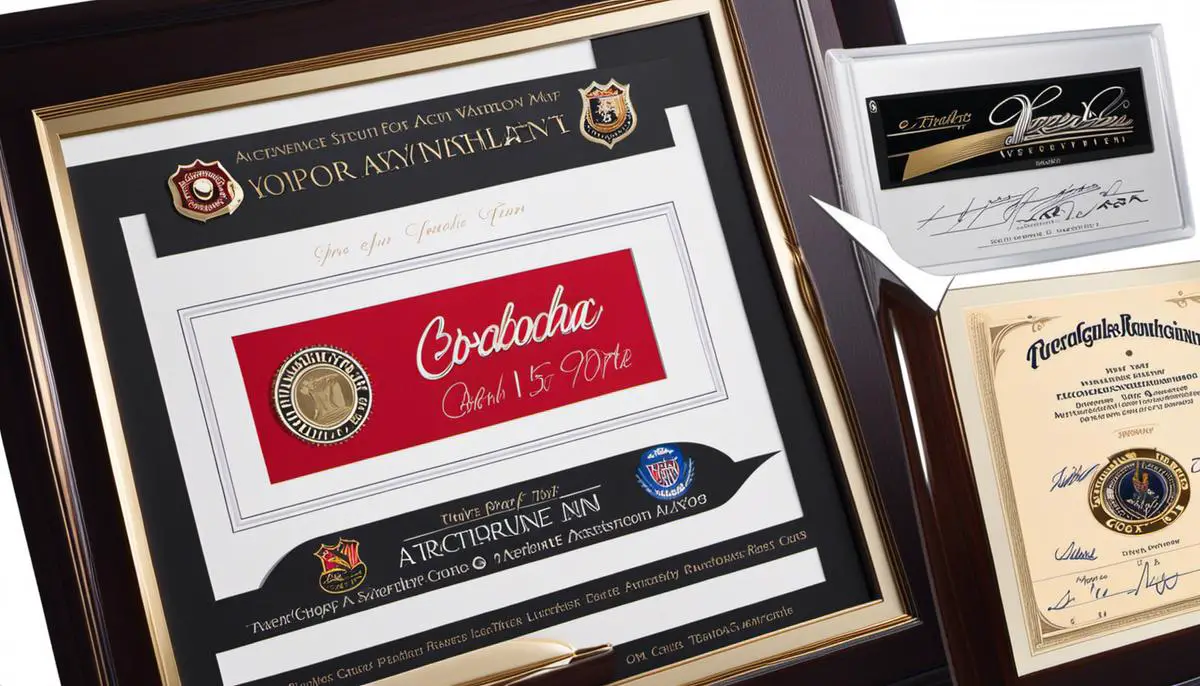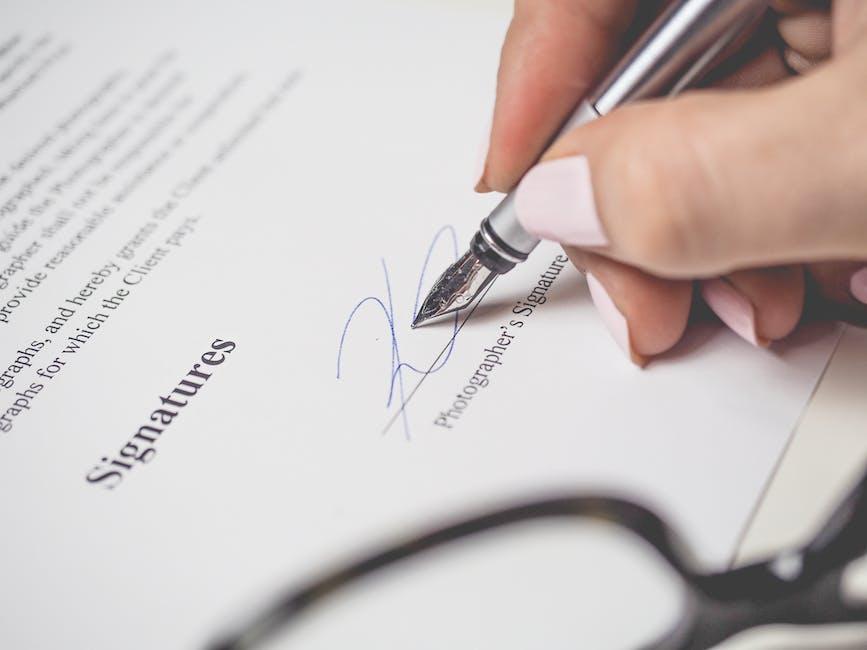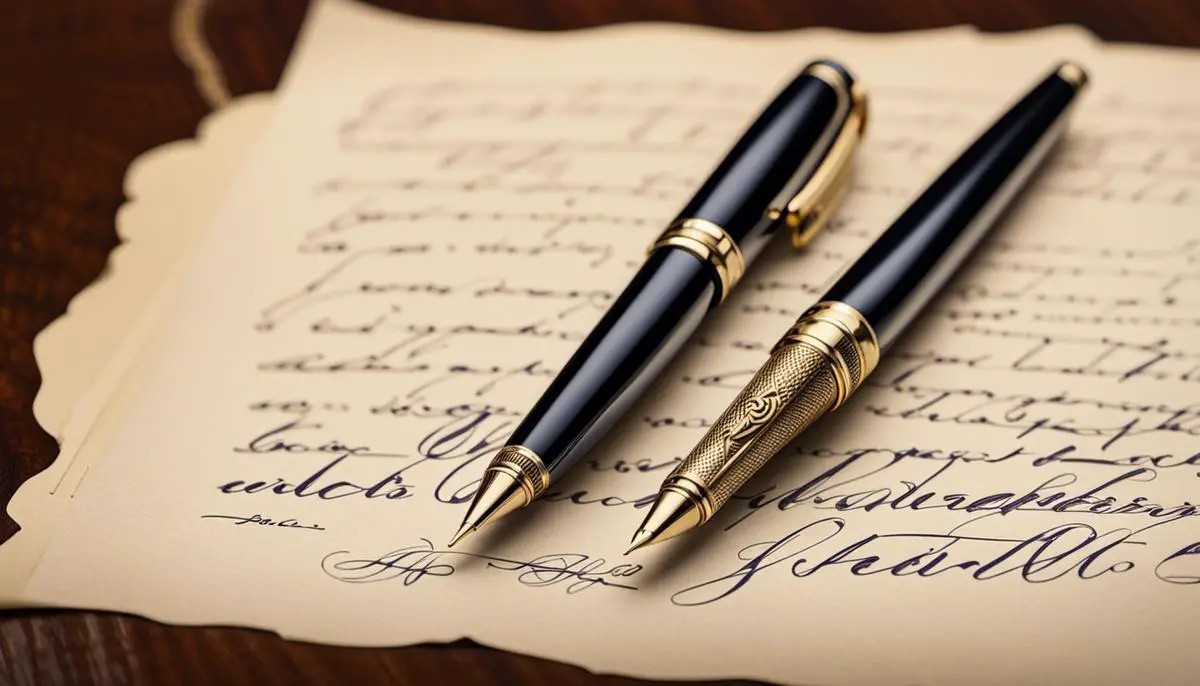Autographs carry a significant personal and historical value, often embodying the character and status of the individual who penned them. The authenticity of these autographs, therefore, becomes a topic of utmost importance. This importance increases exponentially in the world of autograph collecting and trading, where an autograph’s genuineness can determine its worth. Our aim will be to delve into the intriguing world of autograph authentication, a specialized field that certifies the originality of these prized possessions. We’ll review the intricate processes involved, explore highly trusted authentication services, expose common tricks used by fraudsters, and discuss the legalities surrounding this particular domain.
Understanding Autograph Authentication
Concept of Autograph Authentication
Autograph authentication fundamentally involves the process of verifying the legitimacy of a signed item, such as a document, a piece of sports memorabilia, or a musician’s guitar. This process could cover the nature of the signature itself or the circumstances surrounding the signing event. This scrutiny and subsequent affirmation of authenticity hold essential in the function of autographs dealers, collectors, and legal entities.
What Entails Autograph Authentication?
The authentication process typically begins with a preliminary visual analysis of the autograph. Experts in the field scrutinize the signature’s distinct elements, such as flow, spacing, slant, and formation, comparing it with the authentic signatures in recognized databases. Advanced techniques of authentication involve the use of infrared and ultraviolet technologies to detect alterations or forgeries invisible to the naked eye. Some items also undergo handwriting analysis or forensic document examination, especially for historical or high-value autographs.
Why is it Important?
The importance of autograph authentication lies in its ability to guarantee value and safeguard investments in the autograph marketplace. For buyers and collectors, an authenticated autograph ensures the signature’s value and originality they acquire is real rather than a facsimile or forgery. It reduces the risk of fraud and, in many cases, adds substantial worth to the autographed item. Plus, for sellers, an authentication certificate can exponentially increase the item’s market price and make it more attractive to potential buyers, which is a crucial aspect, given the proliferation of counterfeit autographs in the market.
Who Performs Autograph Authentication?
Autograph authentication is performed by experienced and trained professionals within dedicated companies. These organizations possess the necessary expertise, technology, and recognized signature databases to hold authority in this specialized field. Renowned autograph authentication companies include the Professional Sports Authenticator (PSA), James Spence Authentication (JSA), and Beckett Authentication Services. These organizations often employ handwriting experts and retired law enforcement personnel experienced in recognizing various types of forgery.
The Role of Authentication in the Autograph Marketplace
The concept of autograph authentication is crucial within the autograph marketplace, as it discerns the difference between invaluable forgeries and invaluable pieces of history. The need for authentication services has continued to grow due to the increasing advancement of forgeries and the widespread circulation of fake autographs. An item boasting an authenticated autograph can sell for a significantly higher price compared to an item without authentication, often increasing the item’s initial value dramatically. Essentially, authentication acts as the critical deciding factor, determining the monetary terms within the autograph trade.

The Process of Autograph Authentication
Understanding the Science of Autograph Authentication
Initial Assessment: Visual Inspection
The authentication process typically begins with a detailed visual inspection of the autograph. Experts use their knowledge of the person’s signature variations, looking to identify consistencies or discrepancies in comparison to known examples. Analysis of the autograph can include the inclination of the writing, the fluidity of the signature, letter sizing, and spacing between letters.
Autopen Verification Process
One common method of mass-producing autographs is an autopen machine that mimics a person’s signature. Professionals can often identify these signatures by looking for repeated patterns, sharp pen lifts, and exact replicates that could be almost impossible by human hand.
Ink And Paper Analysis
Examination of the ink used can sometimes reveal if the autograph is genuine. The type of ink used should be consistent with what was available during the time the signature was allegedly made. Similarly, an analysis of the paper on which the autograph is done can help in the authentication process. For example, signatures alleged to be from a specific period should not be on paper that was developed later.
Forensic Analysis
In some cases, more in-depth forensic analysis may be required. This can include infrared and ultraviolet examinations to look for alterations or erasures or to detect substances that wouldn’t normally be visible. Other methods can involve microscopic analysis to detect minute details or anomalies in the paper or ink.
Videospectral Comparator
A commonly used tool in this process is a videospectral comparator, or VSC. This device uses different wavelengths of light to reveal differences in ink on a paper. It’s particularly useful in identifying any attempt to alter or forge an autograph.
Authentication Database Comparison
A comparison of the signature is made against a database of known authentic examples. This stage is crucial as it makes it easier to notice slight errors or discrepancies that may have previously gone unnoticed.
Authentication Stamps
Once established as authentic, autographs often receive a stamp, sticker, or certificate of authenticity to confirm their verification. This form of identification makes it easier for potential buyers to trust an autograph’s origin.
Autograph authentication is more of an art form than it is a precise science. This specialized procedure leans heavily on the extensive knowledge and experience of experts, at times depending on their informed instincts. The authentication process is intricate and diverse, combining aspects of technology and forensic science with a high level of attention to detail.

Popular Authentication Services
The Role of a Professional Sports Authenticator (PSA)
Specialized services like that of PSA, short for Professional Sports Authenticator, play a significant role in autograph authentication. PSA is a market leader in this field, operating globally despite being based in the United States. Since its establishment in 1991, PSA has been responsible for the authentication of millions of valuable items, encompassing sports memorabilia, signed items, and trading cards. The company’s authentication approach is a blend of trusted techniques including, but not limited to, advanced lighting and magnification examinations, in-depth ink analyses, and direct comparisons to verified samples. Their service costs are value-based, starting as low as $20 for items with a value less than $500 and can go up to $300 for items valued over $7500.
James Spence Authentication (JSA)
James Spence Authentication (JSA) is another leading name in autograph authentication. Founded by autograph expert James Spence, it has become one of the most trusted services in the United States. JSA utilizes an experienced team of authenticators, each with specialties in different areas. The authenticators employ a variety of methods, such as signature comparison, ink and medium analysis, and exemplar database referencing. JSA’s pricing is highly dependent on the type and value of the item but typically starts at $20 for in-person autographs and increases with the item’s value.
Beckett Authentication Services (BAS)
Beckett Authentication Services (BAS) is a widely recognized autograph authentication agency formed by two of the most respected autograph authenticators, Steve Grad and Brian Sobrero. Since launched in 2016, the service has authenticated thousands of items and gained industry recognition due to its authenticators’ involvement with the popular TV show “Pawn Stars”. Utilizing advanced technological methods like spectral imaging, Beckett distinguishes itself for its precision and accuracy. The pricing structure of Beckett is per autograph, starting at $20 and increasing based on the autograph’s complexity.
Authentication and Grading Services (AGS)
Globally recognized, AGS or Authentication and Grading Services has a rich history. The company’s reputation lies in their team of experts with years of experience in autograph authentication. The company’s authentication process involves in-depth analysis of inscriptions, signature comparison using a large database of exemplars, and advanced technology to inspect the autograph’s ink and medium. As for pricing, AGS charges based on the celebrity’s signing habits, their historical data and market value.
Global Authentics LLC
Global Authentics LLC provides autograph authentication for a variety of items, including sports memorabilia, celebrity items, and historical pieces. Established in 2000, it has grown to become a reputable global service. The company employs a multi-step process, incorporating both manual and computerized methods of signature analysis, a robust exemplar database, and forensics for ink and paper analysis. They have a flat fee structure for authentication, which does not fluctuate with the item’s value.
In choosing an authentication service for autographs, one must consider each provider’s unique strengths. The choice usually depends on factors such as the type and value of the item and the specific needs of the client.

Common Frauds and How to Avoid Them
Understanding the techniques that forgers use to imitate genuine autographs can help an individual make an informed choice. Some common forgery methods include auto-pen, secretarial signed items, preprints, and ‘clubhouse’ autographs. An auto-pen, typically used for mass signings, is a device that produces machine-made copies of an autograph. Secretarial signed items are those signed by someone, usually a secretary, on behalf of the actual person. Preprints are simply facsimiles printed onto photos or memorabilia, while ‘clubhouse’ autographs involve a team member signing on behalf of an athlete.
Notorious Fraud Cases
Over the years, there have been notable autograph forgery cases that have reached national headlines, one such is the Operation Bullpen. In this large-scale operation, the FBI busted a multimillion-dollar sports memorabilia fraud ring dealing in forged autographs and counterfeit collectibles. Similarly, the case involving notorious forger Mark Hoffman, who produced fake documents related to significant moments in American history and sold them to the highest bidder.
Identifying Fraudulent Autographs
Distinguishing an authentic autograph from a forge can be challenging, especially to an untrained eye. However, key things to look for include inconsistency in pen pressure, as forgers often lift the pen from the paper, creating uncharacteristic breaks in the signature. Also, oversaturation of one particular autograph in the market could be a red flag. Signatures that appear too perfect can also be of concern, especially if a particular celebrity is known for their sloppy autograph.
Preventing Autograph Fraud
Research is a powerful tool that can potentially save you from purchasing a counterfeit autograph. Familiarize yourself with the authentic autograph of the person in question, understand the normal variation in their autograph, and try to learn their signing habits. It is also recommended to purchase autographs from reputable sellers who provide a money-back guarantee if the autograph is found to be fake.
Importance of Professional Autograph Authentication
While personal research and informed decision-making play a significant role in avoiding counterfeit autographs, relying on professional autograph authentication services is of paramount importance. These professionals use advanced technology and have extensive databases of authentic autographs for comparison. They consider many factors, including ink age, pen pressure, writing speed, and the natural variation of the signature to authenticate it. They issue a certificate of authenticity, which adds to the value and credibility of the autograph.
Introduction: The Importance of Awareness and Diligence
Embarking on a journey into the world of autograph collection can be full of excitement, yet it is crucial to proceed with caution due to rampant fraudulent practices. If a deal seems overly enticing, it is often because it is not genuine. However, risk can be significantly minimized with thorough research, adequate knowledge about the autograph signer, and trusted professional authentication services. Therefore, a collection of autographs, built with due diligence, can end up being an authentic and precious treasure.

Autograph Authentication & the Law
Understanding the Regulations around Autograph Collection
It is essential to be familiar with the legislations related to autograph and collectible transactions to ensure thorough understanding and compliance. The Hobby Protection Act, a federal law introduced in the United States in 1973, governs these regulations. This law aims to thwart the manufacturing and sale of counterfeits in the autograph and other related markets, such as sports memorabilia. It mandates sellers to clearly identify any non-original items or duplicates as reproductions, thereby providing a layer of protection for collectors.
Seller Liability for Fake Autographs
When a dealer sells forged signatures without appropriately labeling them, they violate the Hobby Protection Act. Under this law, consumers can take legal action against the seller dealing in counterfeit goods. The law also allows the Federal Trade Commission (FTC) to pursue civil penalties against counterfeiters.
The state law of California (AB 1570) elevates the dealer’s responsibility even more. If sellers fail to abide by the stringent requirements of the COA, they render themselves liable for court costs, potential damages, and the buyer’s attorney fees.
Legal Recourse for Victims of Autograph Fraud
In the unfortunate event of falling prey to autograph fraud, victims have several courses of legal action available to them. If the fraud was an online transaction, victims can report the incident to the Internet Crime Complaint Center (IC3), a partnership between the FBI and National White Collar Crime Center.
If victims find themselves deceived by reputable establishments or famous auction houses, they can choose to file a complaint with the FTC. For residents in California, an additional avenue for legal recourse can be taken under AB 1570. Buyers can sue sellers in civil court for ten times the amount of actual damages, as well as costs and legal fees.
Knowing Your Rights and Responsibilities
To safeguard interests, consumers should insist on obtaining a COA for purchased autographs. They are also encouraged to use reputable third-party autograph authentication services to validate their items’ authenticity.
It is essential to remember that while laws exist to protect buyers from fake autograph scams, consumers also must bear some responsibility to ensure they do not become victims of such frauds. Consumers must conduct due diligence, such as researching the dealer’s reputation, asking for a COA, using a trusted authentication service, and assessing conditions that are too good to be true.

Stepping into the sphere of autograph collecting can be both exciting and daunting. Knowing who to trust, what to look for, and when to seek expert help is critical in ensuring you make informed decisions and protect your investments. By understanding the intricacies of autograph authentication, recognizing reliable service providers, being aware of common fraudulent practices, and comprehending the legal aspects therein, you can navigate this activity with greater confidence and vibrant curiosity. So remember, every signature tells a story, and it’s your task to ensure that story is an authentic one.
